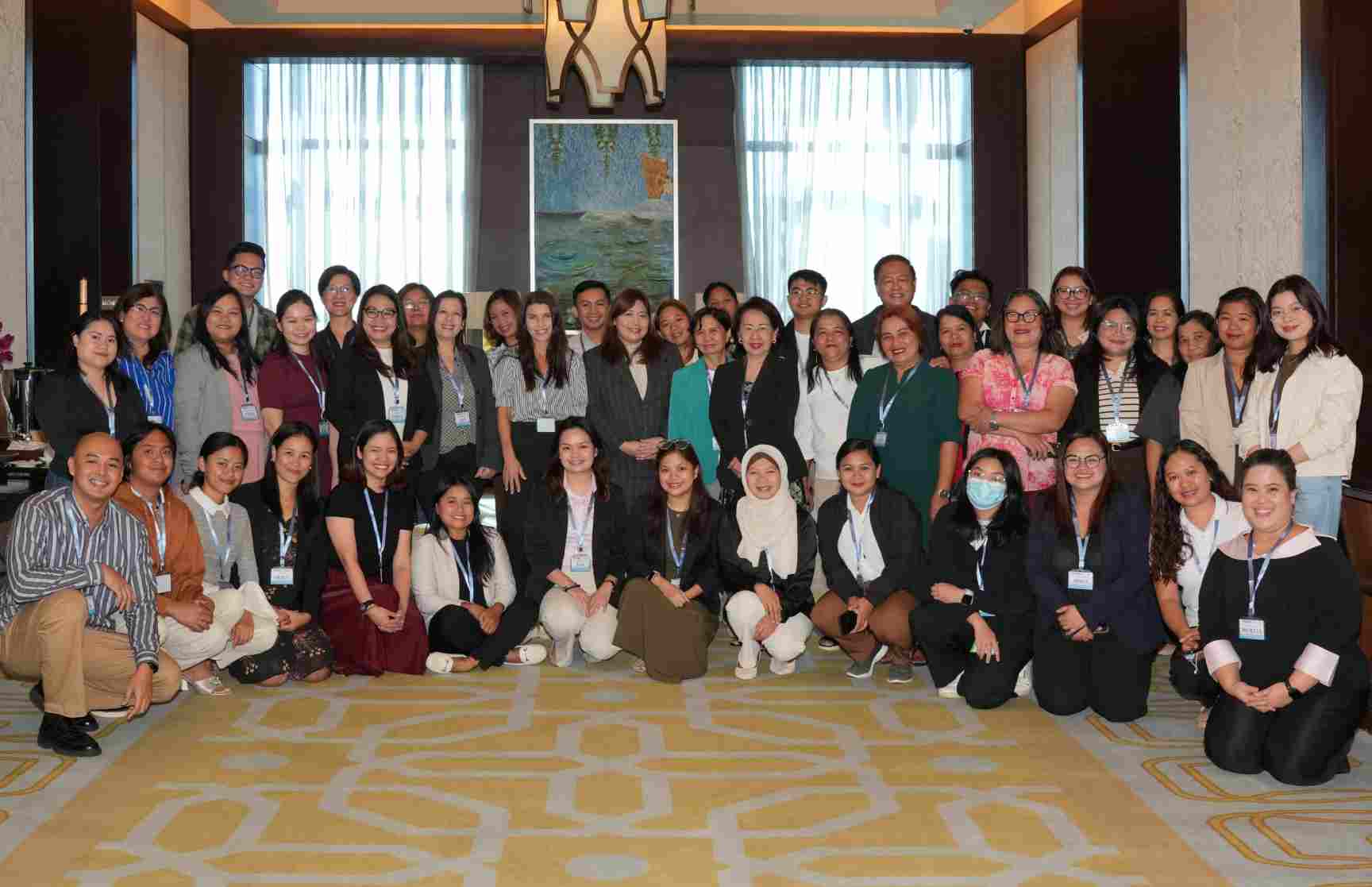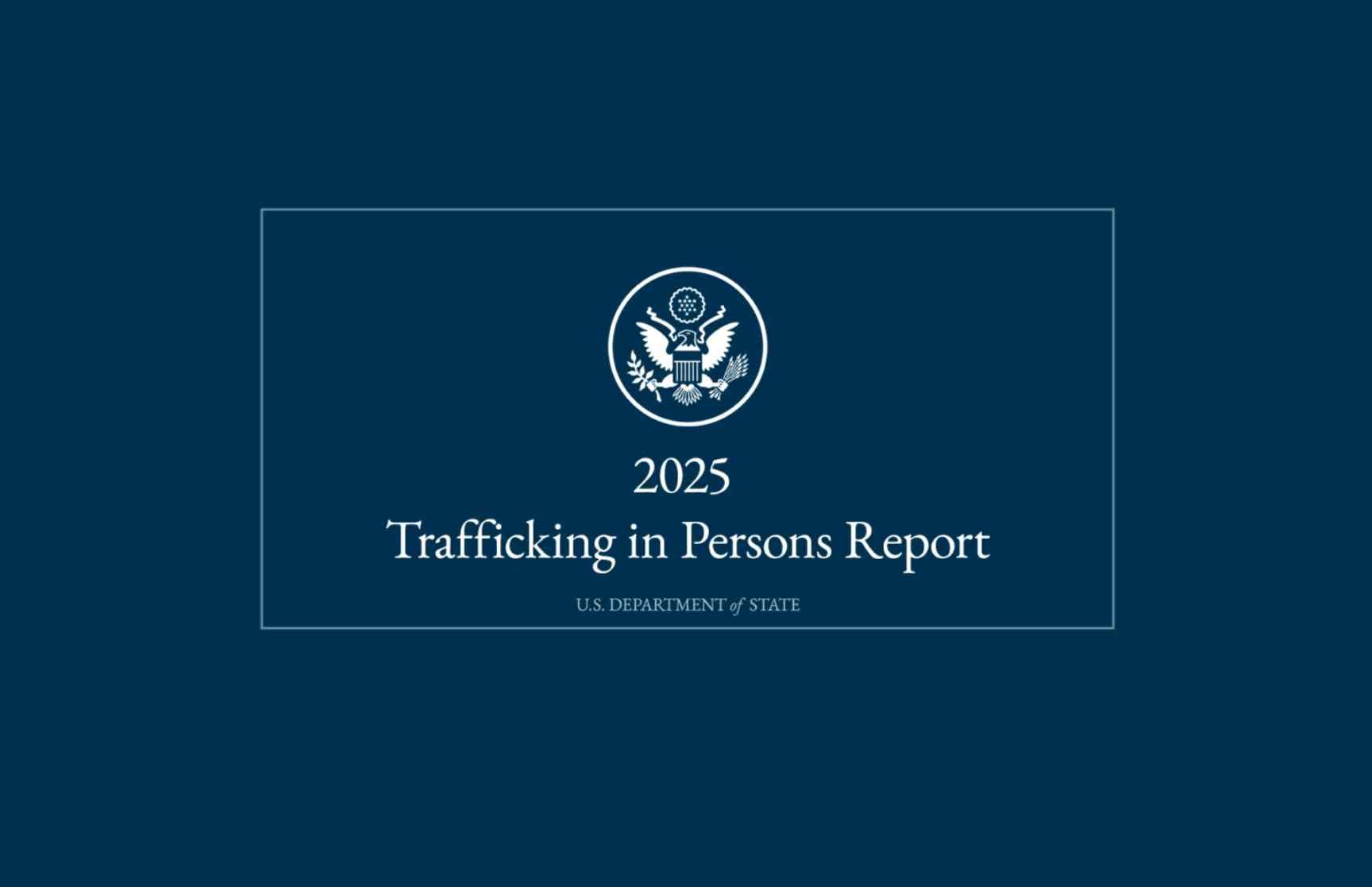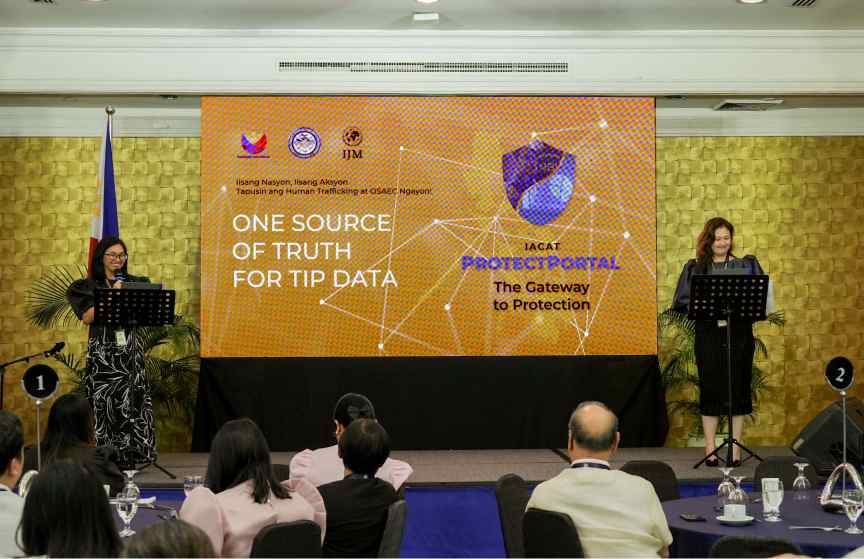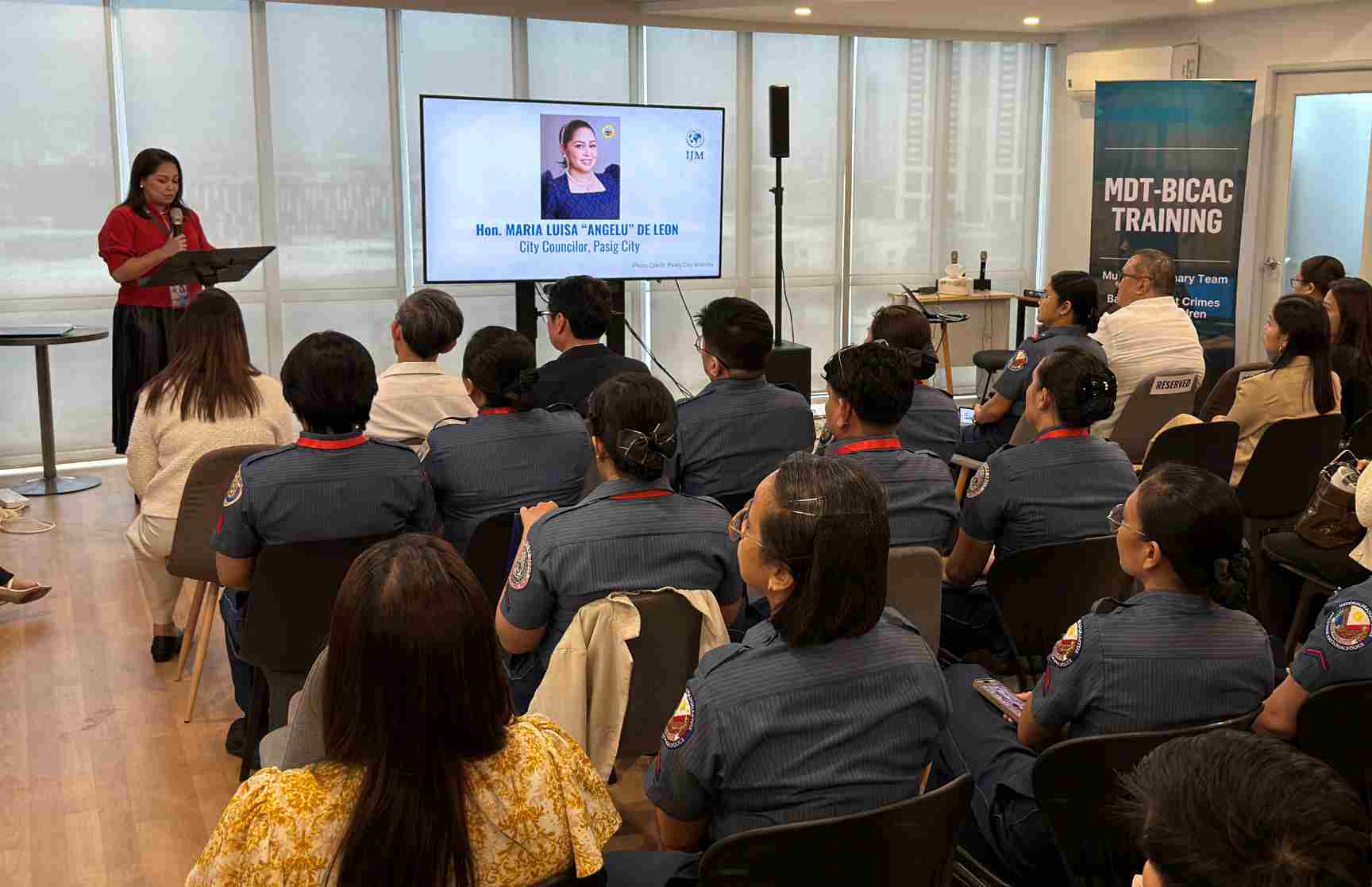
A strategic response to an alarming reality
The Scale of Harm research project by International Justice Mission (IJM) and the University of Nottingham Rights Lab revealed an alarming prevalence of online sexual exploitation of children, estimated at close to half a million children.
In the fight against online sexual exploitation of children, the need to equip frontliners in local governments is more urgent than ever.
IJM developed the Multi-Disciplinary Team – Basic Internet Crimes Against Children (MDT–BICAC) Training and has conducted the weeklong training program in Lapu-Lapu City in February 2025, Pasig in July 2025, and in Bacolod, October 2025.
Notably, the most recent U.S. Trafficking in Persons (TIP) Report, released in late September 2025, highlighted the urgent need to strengthen community-level responses and equip frontliners with the skills necessary to combat child trafficking and exploitation.
Why MDT–BICAC matters
The MDT–BICAC Training is designed to build a coordinated, trauma-informed, and legally grounded response to Internet Crimes Against Children (ICAC), with a particular focus on OSEC. It equips participants with foundational knowledge of relevant Philippine laws, investigative techniques, case management strategies, and victim-centered care practices—all within the framework of a Multi-Disciplinary Team (MDT).
An MDT, as defined by Mark Ellis in his 2000 paper Forming a Multidisciplinary Team to Investigate Child Abuse, is “a group of professionals working together in a coordinated and collaborative manner to ensure an effective response to reports of child abuse and exploitation.” Research by Young, Teresa L., and Debra Nelson-Gardell in the Journal of Public Child Welfare supports this approach, noting that collaboration among professionals improves prosecution outcomes and survivor experiences.
James Leslie Herbert and Leah Bromfield’s evaluation of the Multi-Agency Investigation & Support Team (MIST) in the Journal of Child Sexual Abuse emphasizes that MDTs build trust, reduce anxiety for children and caregivers, and foster shared learning among agencies. Regular meetings and mutual support also help prevent burnout among responders.
MDTs build trust, reduce anxiety for children and caregivers, and foster shared learning among agencies. Regular meetings and mutual support also help prevent burnout among responders.
Building frontline readiness to combat OSAEC
The MDT–BICAC Training prepares multi-disciplinary teams by helping them:
- Deepen understanding of OSEC/OSAEC dynamics and legal frameworks by enhancing participants’ knowledge of case manifestations, detection methods, and relevant laws on Child Sexual Abuse and Exploitation Material (CSAEM).
- Strengthen legal, investigative, and collaborative skills through training on document preparation, evidence gathering using open-source tools, and regular MDT coordination.
- Promote trauma-informed, victim-centered approaches in case handling, while encouraging responder wellness and advocating for sustainable, policy-backed collaboration.
IJM is also working to support advocacy for local policies that institutionalize the MDT approach, ensuring long-term sustainability of collaborative child protection efforts.
Delivered in-person, the training uses a mix of lectures, Q&A, dialogue, and hands-on practical exercises. This format allows for real-time feedback, deeper discussion, and skill-building in realistic settings.
Participants include law enforcement officers handling cases involving women and children, social workers, prosecutors, health officers, mental health professionals, victim service coordinators, educators, and representatives from local councils, interagency networks, and the private sector.
In the Bacolod run, Smart-PLDT sent representatives to join the training, in an effort to understand more about the issue and explore more ways to support the fight against OSEC.
Pasig City: leading with commitment
Held from July 9 to 17, 2025, the MDT–BICAC Training in Pasig City brought together child protection frontliners to strengthen their capacity for swift and collaborative responses to OSAEC cases.

“We are the ones who stand between innocents and exploitation,” said Pasig City Councilor Maria Luisa “Angelu” de Leon. “We don’t just react to crimes—we anticipate, we collaborate, and we transform systems. The perpetrators do not work in silos, so neither should we.”
We are the ones who stand between innocents and exploitation. We don’t just react to crimes—we anticipate, we collaborate, and we transform systems. The perpetrators do not work in silos, so neither should we.
The training emphasized coordinated service delivery tailored to the needs of survivors and their families, informed by the local context. IJM Philippines’ Community Engagement Director Evelyn Pingul highlighted the importance of empowering first responders:
“First responders in the community play a critical role in protecting children from online sexual abuse and exploitation—and Pasig City's commitment to equipping its frontliners with effective prevention and response strategies should serve as a model for other local governments that prioritize the safety and wellbeing of their children.”

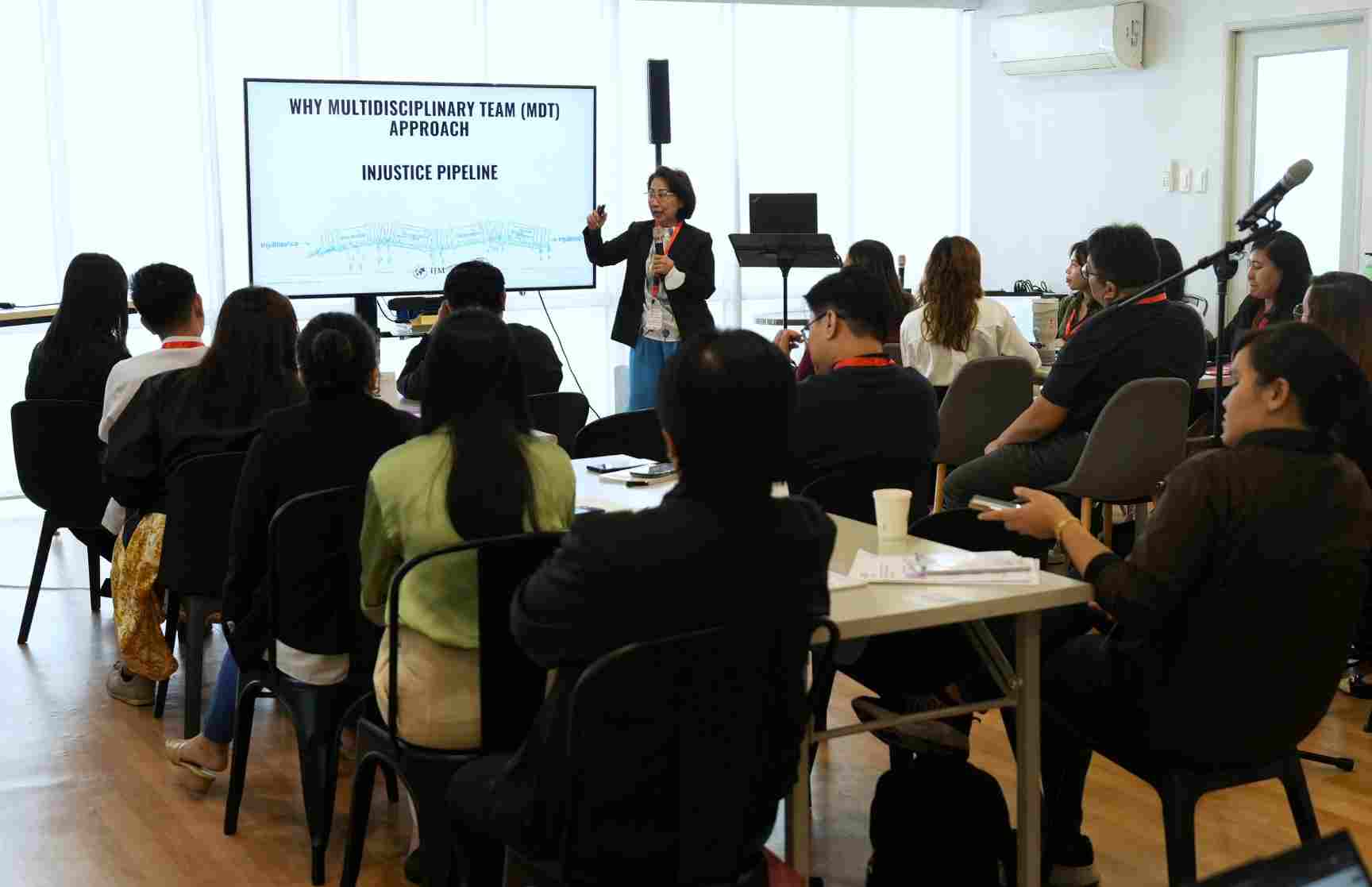
Bacolod City: a model of local leadership
In Bacolod City, more than 40 frontliners—including law enforcers, social workers, prosecutors, educators, health officers, information officers, and child protection advocates—joined the MDT–BICAC Training to form a dedicated team against OSAEC.
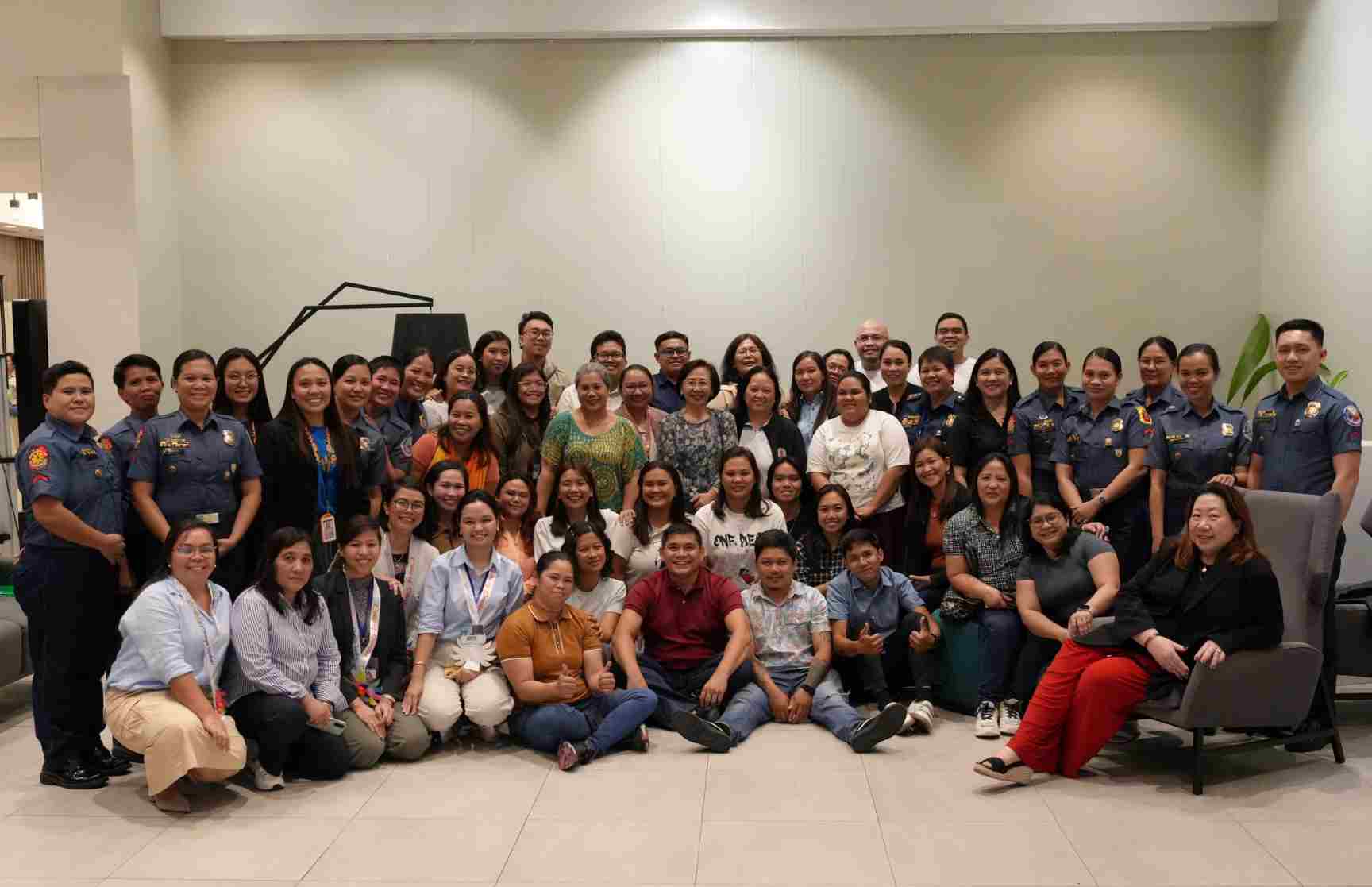
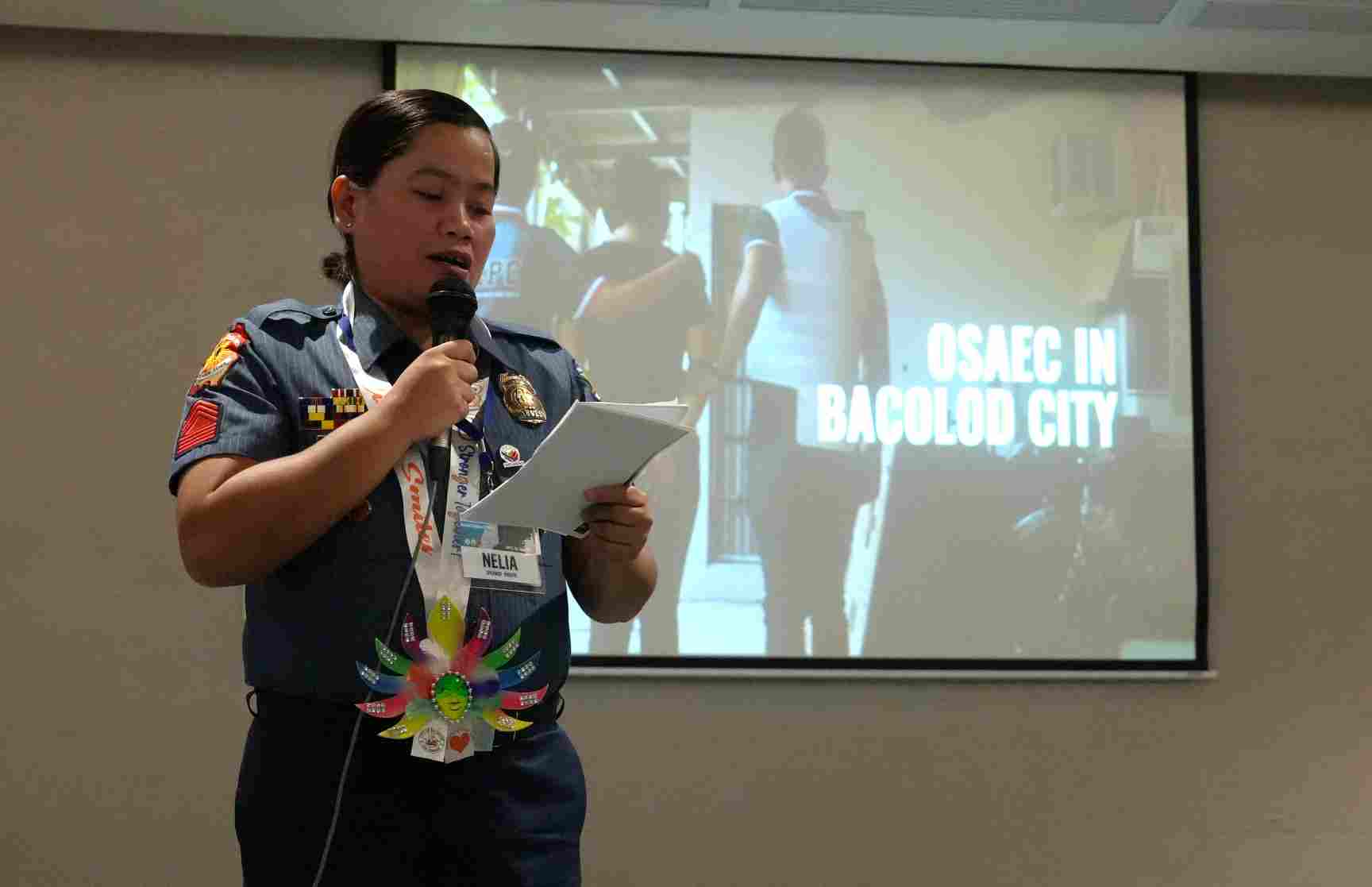
Mayor Greg Gasataya expressed strong support for the initiative: “We will never tolerate online sexual abuse and exploitation of children in our city. Our frontliners are fully prepared to hold traffickers accountable, rescue and rehabilitate victims, and send a powerful message of justice to both active and potential perpetrators. I urge everyone to remain vigilant, as this crime is often committed within homes. Report it immediately to ensure the timely rescue of victims.”
Attorney Lovelie Faith Entoma-Forcadilla, IJM's Head of Collaborative Casework, praised Bacolod’s efforts, particularly the creation of the SAFE Hotline (Support and Action for Families in Emergency) through an executive order.
“The Bacolod LGU has been very supportive in the fight against OSAEC. They have successfully passed an anti-OSAEC ordinance and recently established the SAFE Hotline to provide a local reporting mechanism for these cases,” Forcadilla said.
Evelyn Pingul commended Bacolod’s proactive stance: “Bacolod City’s commitment and initiatives are truly commendable and set a strong example for other LGUs. The Philippines’ Tier 1 ranking in the 2025 US Trafficking in Persons Report reflects our national dedication to combating human trafficking. Bacolod’s leadership demonstrates how local governments can translate that commitment into real protection for children.”
Forcadilla added: “The vigilance of the community will go a long way. With the SAFE Hotline now in place, Bacolod can provide a secure channel for citizens to report OSAEC cases and actively participate in protecting children.”
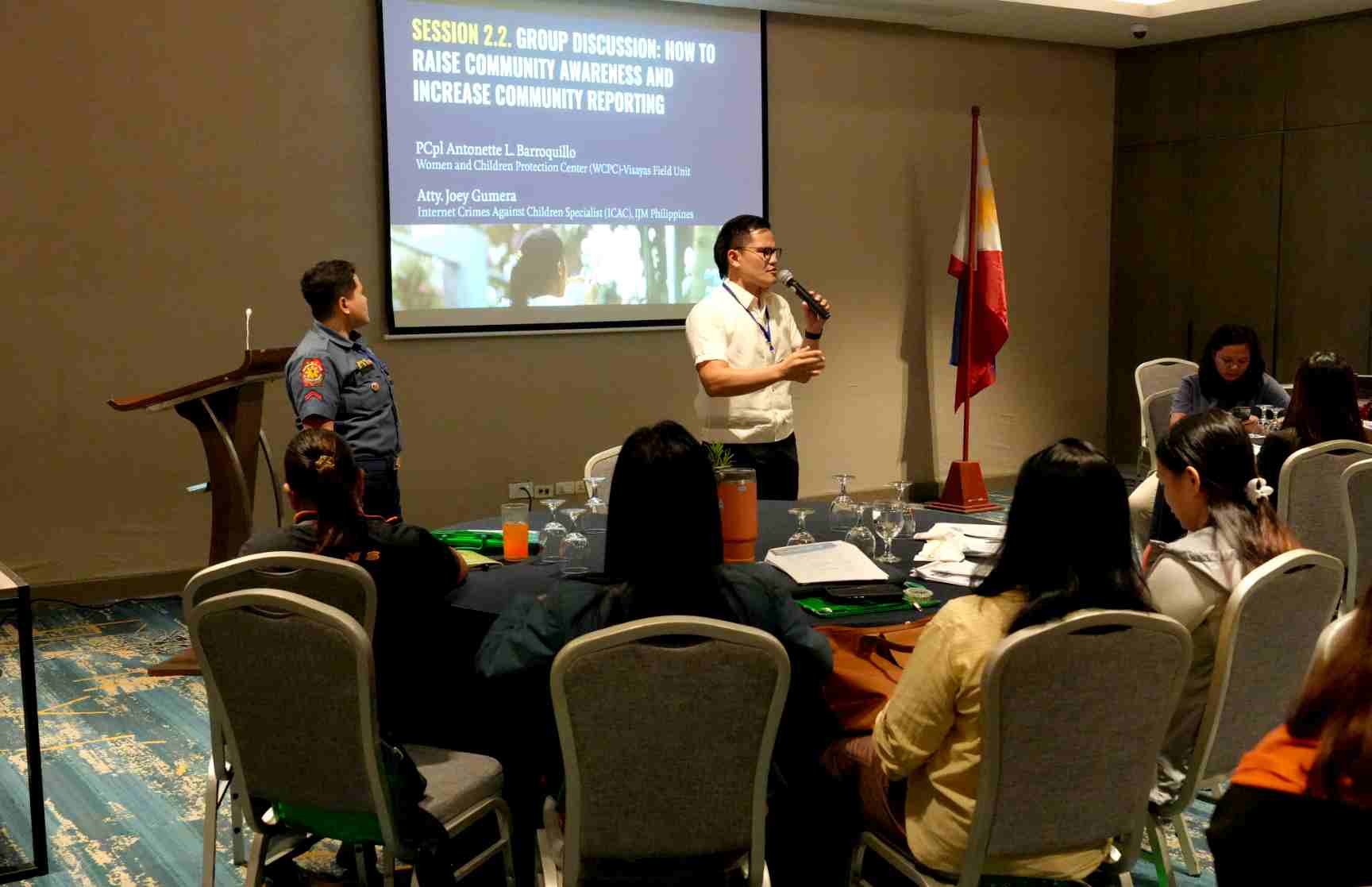
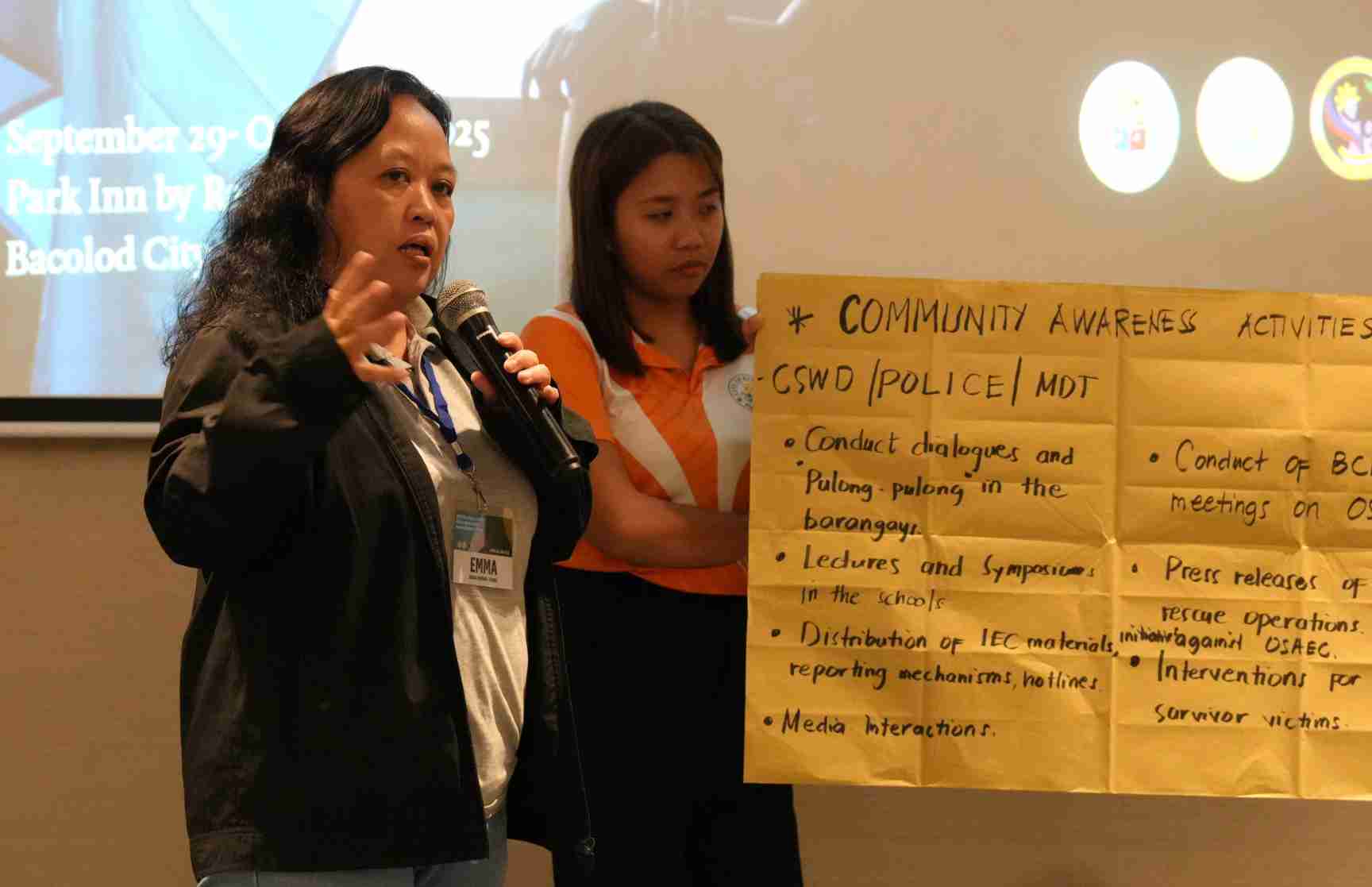
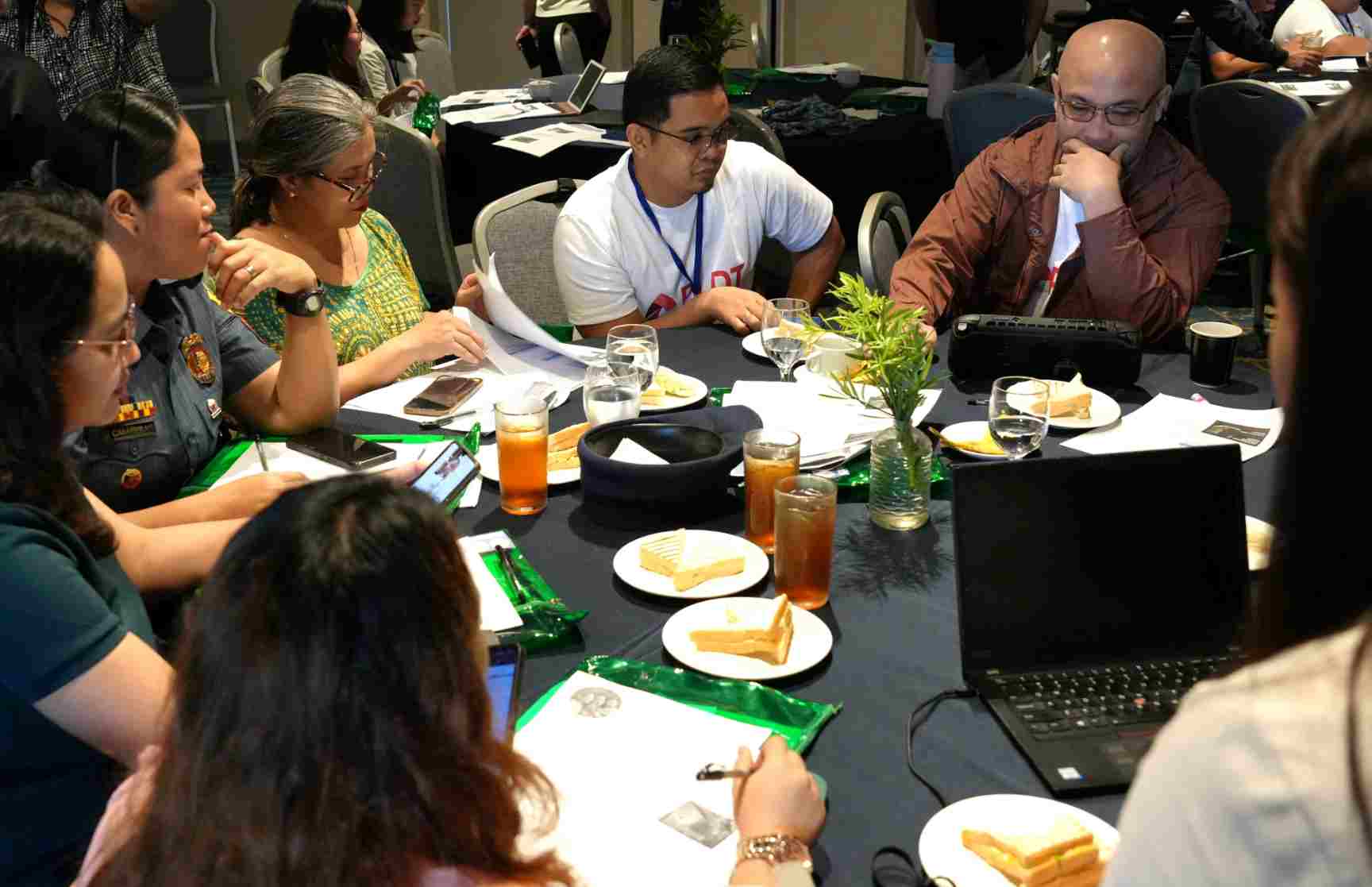
Looking ahead: a vision for change
IJM Philippines continues to work closely with local governments, especially in estimated high-prevalence areas, to establish MDTs with defined roles, protocols, and response plans. The goal is to institutionalize the MDT approach in areas where a strong response is needed most, ensuring long-term sustainability of collaborative child protection efforts.
By equipping frontliners in strategic places with the tools, knowledge, and support they need, MDT–BICAC Trainings are laying the groundwork for a safer, more responsive Philippines—where communities stand united and prepared against the exploitation of children.




